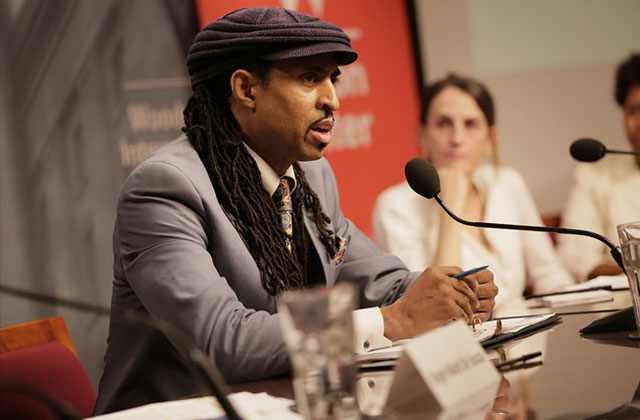For twenty-four years, Mustafa Ali worked in the Office of Environmental Justice at the Environmental Protection Agency (EPA). The founding staff member resigned from his role as senior adviser and associate assistant administrator in March, less than two months after Donald Trump was sworn in as president. The reason? Ali’s deep concern that the new administration would not only fail to work on behalf of communities of color, but that it would push policies and determine budgets that harm these groups.
Now senior vice president at the social advocacy organization Hip Hop Caucus, Ali was interviewed by Nation of Change for an article published Friday (August 11). In it, he explains his pessimism about environmental justice under the current administration—and his optimism around engaging more people of color in the climate justice fight.
In the Q&A, Ali expresses that he’d hoped that his resignation would be a teachable moment—on many platforms—for the incoming administration:
[In my resignation letter] I was trying to highlight [some priorities] for them, because when administrator [Scott] Pruitt was going through his Senate confirmation, he said he didn’t know a whole lot about environmental justice, so I thought I would take it as an opportunity to share with him the realities and opportunities.
However, he admits that it had been made clear to him before he quit that environmental justice was not a priority for the agency under Pruitt. That has been confirmed by what he has observed since leaving:
And, to date, we are now six-plus months in and they have not yet visited a community with environmental justice concerns. They have not yet moved forward on a policy that would be beneficial to low-income communities, communities of color or indigenous populations. Actually, just the opposite has happened so far.
I’ve worked for both Republican and Democratic administrations—five administrations, in total. In each of those, I always saw at least a glimmer of hope, all the way from first Bush, Clinton, second Bush and Obama. But, then, with the Trump Administration—well, [my time there] was very, very short.
Though studies continually emphasize how communities of color and lower-income people of all races are disproportionately impacted by climate change because of where their communities are located coupled with a lack of resources to combat the effects, these groups historically are not at the front lines of climate justice fights. Ali believes that does not have to continue to be the case:
That has always been the challenge of the green movement: connecting with real folks who are dealing with a multitude of issues in their lives. Being from Appalachia, I get that. The beauty of the work that I’ve been associated with is helping folks understand how these impacts are taking away from them, and lots of times that will get people engaged in the process, when they think they’re losing something.
Read the full interview here.
